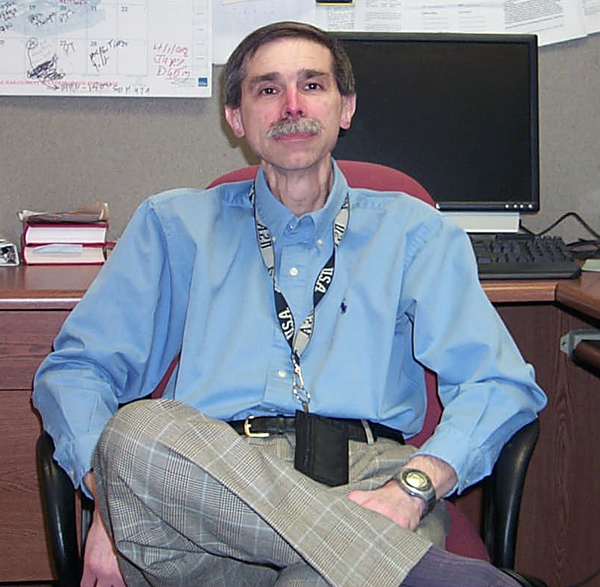In Memoriam: Richard W. Fliszar
1954-2013
by Richard Lamoreaux, U.S. Army, Picatinny Arsenal

Richard W. Fliszar, of Florham Park, New Jersey, passed away on 23 March 2013 at the Morristown Memorial Hospital in Morristown. He was 59 years old. Rich was born in Newark, New Jersey, and lived in Hillsborough before moving to Florham Park 27 years ago.
Rich was a health physicist for Picatinny Arsenal in Dover for 29 years. He also served as a federal occupational safety and health inspector for seven years.
He was a graduate of Rutgers University, where he received his bachelor's degree in environmental science and his master's degree in health physics. Rich was an active member of the Health Physics Society since 1983. He is survived by his wife Mary and his children, Christopher, Kimberly and her fiancé Peter, and Kelly.
Rich served as the radiation safety officer, health physics manager, and a health physics subject matter expert for the U.S. Army Armament Research Development and Engineering Center (ARDEC) Radiation Protection Office. He provided outstanding management and oversight of ARDEC's Radiation Protection Program, as well as all radiological operations performed at Picatinny Arsenal. He managed multiple Nuclear Regulatory Commission (NRC) licenses, which supported and allowed for research and development activities of military weapon and munitions systems. Rich brought an exceptional level of knowledge to Army-wide programs dealing with depleted uranium (DU) munitions and ionizing/nonionizing radiological equipment and materials.
Rich led several highly visible radiation safety research and development efforts, earning him a reputation as an exceptional dedicated employee and an Army expert in the area of DU radiological hazards. Several well-known efforts that Rich was involved in include the radiation safety risk assessment for 25mm armor-piercing munitions, the potential DU contamination of Desert Storm vehicles, the material design of experiments for the Abrams fire control tritium device, the tritium lamps for the 120mm mortar system sight, the DU munitions facility teardown at the Iowa Army Ammunitions Plant, and the DU contamination assessment of Abrams tank gun barrels.
Rich's commitment and dedication to his career was so strong that he continued to provide high-quality work and guidance even after it become too difficult for him to travel to the office. On many occasions, he requested a computer while recovering in the hospital intensive care unit (ICU) so he could continue to work on his projects.
His true gift, however, was his ability to expertly perform his professional tasks while keeping his family first. Rich was the truly the nicest guy most people will ever meet. Everyone loved to stop by or call to "shoot the breeze" with him. He told the corniest (to some) jokes and had the best memory for details. He could remember not only where an off-site meal occurred, but what everyone ate for lunch and what the waiter was wearing during a business trip that had occurred years prior. He also had a gift for remembering dates. When asked about a specific date a decade ago, he would normally comment, "I remember that day; it was on a Tuesday," and the scary part was that he was always right. Even when he was hooked up to a ventilator in the ICU and couldn't speak, he made sure his visitors were seated comfortably while writing his jokes or thoughts about the most recent Giants or Yankees game out on his pad for everyone's enjoyment. His laughter and smarts will be missed by so many!




